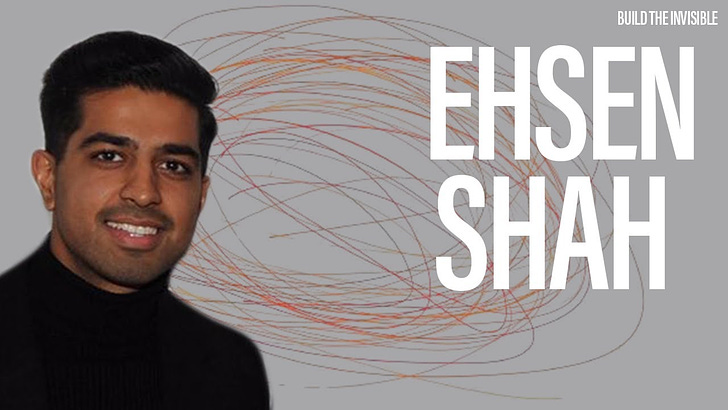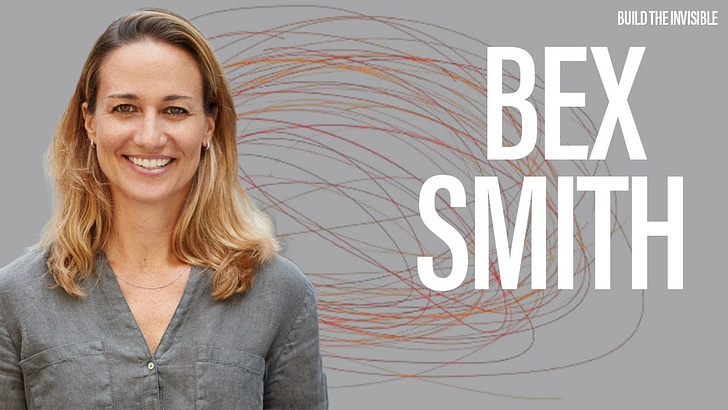Why You Should Measure Success In Your Own Terms
When we sat down Ehsen outlined why rest and recreation are more important to him than waking up at 5am, and why listening and accountability are two of his core business values.
Ehsen is the founder of B-Engaged, an organisation which specialises in sports & gaming marketing activations, with over 21 athletes and 15 brands as clients.
Aside from B-Engaged, Ehsen has founded and invested in a number of other businesses. Ehsen is passionate about growing businesses within the sports industry and the within the green / sustainable industries through an eco VC fund created to bring like minded people and organisations together.
📖 Read the full interview on danielgeey.com
📺 Watch our full interview here:
🎧 Listen to the interview here:
💡 Routine, Rest & Recreation
I don't think one person's process can completely be replicated and work for another person because each individual human is completely different in the way that their minds work, their bodies work and their attention spans work as well.- Ehsen
In Chapter 5 of Build the Invisible I talk about how I needed to find my own routine if I was to meet the deadlines to write the book:
The routine started each week on a Sunday evening. My mantra was ‘just write’. It didn’t need to be perfect (it rarely was), but I kept consistently showing up. The imperfect slowly became a little less imperfect (Build The Invisible, Page 74).
For many, starting your routine at 5am is the ultimate measure of success.
But not Ehsen…
I’m not a big fan of these opinions that you have to wake up at 5am, you have to do this, you have to do certain things in a certain way, because realistically, if you're working off five hours sleep, it's impossible for you to function anyway, so sleep is the most important part in all of that … if you're not sleeping well, the rest isn't going to work.
He believes that building structure and routine into your day is much more beneficial than forcing yourself to be a morning person, if that’s just not who you are.
Ehsen goes into further detail about how he sets boundaries and commits to them by putting practices in place.
…between 10pm-7am, other than WhatsApp and iMessage, all my other apps are blocked, so I can't use them, so that forces me not to be on my phone, to just watch TV, or recently with the new Call of Duty coming out, I just played Call of Duty for one and a half hours maybe at night, but you're immersing yourself into a different world, and I think people underestimate that element of you detaching yourself away from reality.
People say you shouldn't play video games or you shouldn't watch TV but it's so healthy for the mind to distract yourself away from something that isn't physically work, and I think people that work in an agency field or a service field, you can lose that so quickly, which is you always want to be on and you will naturally hit a burnout, you will naturally become inefficient, so having those two hours for your mind to turn off is so important.
Switching off and having downtime to recover shouldn’t be underestimated.
Recreation is defined as an activity which is done for enjoyment when one is not working.
We can break this down even further.
Re…creation.
This is a time to recreate ourselves.
✔️ Holding Yourself Accountable
In a similar fashion to David Lampitt, Ehsen embraces mistakes and the lessons which are learnt from not always being successful.
He talked candidly about his own mistakes as a founder, and the importance of learning from them to avoid making the same mistake again.
We have to accept everyone makes mistakes. Mistakes lead to situations which aren't planned for, so you can't ever run a business or manage the team without knowing people will make mistakes, but I think the key thing for me is always the accountability of that mistake, in terms of, unless you take accountability for it, you won't learn from it.
Failure is a two-stage process: (1) the failure and (2) the recovery, and accountability is the bridge between the two.
Accountability is a central theme in Build The Invisible, and that’s why I created the Build The Invisible Journal; to help you be accountable by tracking your progress.
👂 The Listeners & The Problem Solvers
I closed each interview for Build The Invisible with the same question from Tim Ferris:
‘If you could have a gigantic billboard anywhere with anything on it, what would it say and why?’
I found that the answer often summarised the individual’s mindset, in business and life, in one line.
Ehsen shared two sayings with me:
The first one we always say in the office, ‘bring solutions not problems’. If you're going to highlight an issue, be prepared to bring a solution with that issue, which is productive. If you're just bringing a problem and not maybe highlighting some sort of analysis around it, pretty much you’re moaning about something, which is completely counterproductive because you can influence someone else's opinion of someone, something, or whatever it might be, in a negative way and that's just got a spiral of decline with it.
The second one would be, ‘listen more than you talk’. There's not necessarily a lot of people that do this, but when you listen, you're capturing information. You can then capture that information and relate in the way that you need to.
Both sayings point to the importance of taking the second, and often more difficult, step.
It’s easy to find a problem, but harder to find a solution; likewise, it’s easy to talk, but harder to actively listen.
🎥 New content from me:
Look out for the next edition of the Build The Invisible Substack, where I will be sharing lessons from Jordan Williamson, Associate Director at CSM & Founder of FACE OF THE BRAND.
📣 In case you missed last week’s BTI Substack:
Why The Right Mindset Is A Catalyst For Success
Bex Smith is an internationally successful footballer who's transitioned to a global executive in sports and business. She founded Crux Sports which consults with some of the world’s leading stakeholders in football including global brands, federations & confederations, international media platforms, AI technology, esports, agencies and some of the worl…





